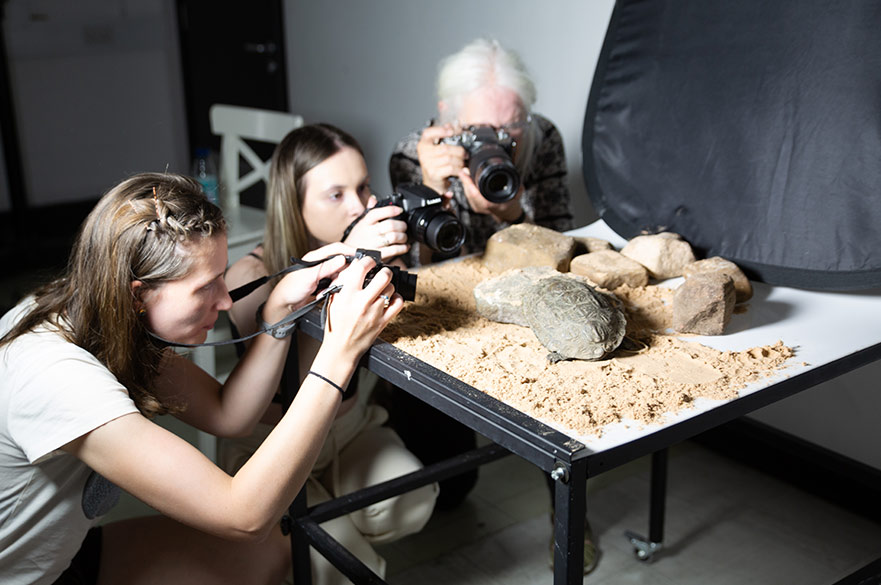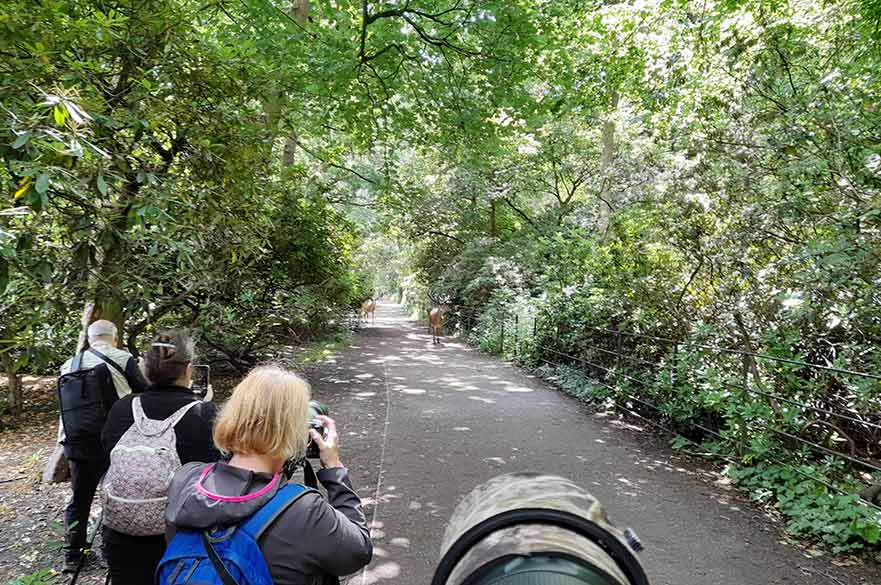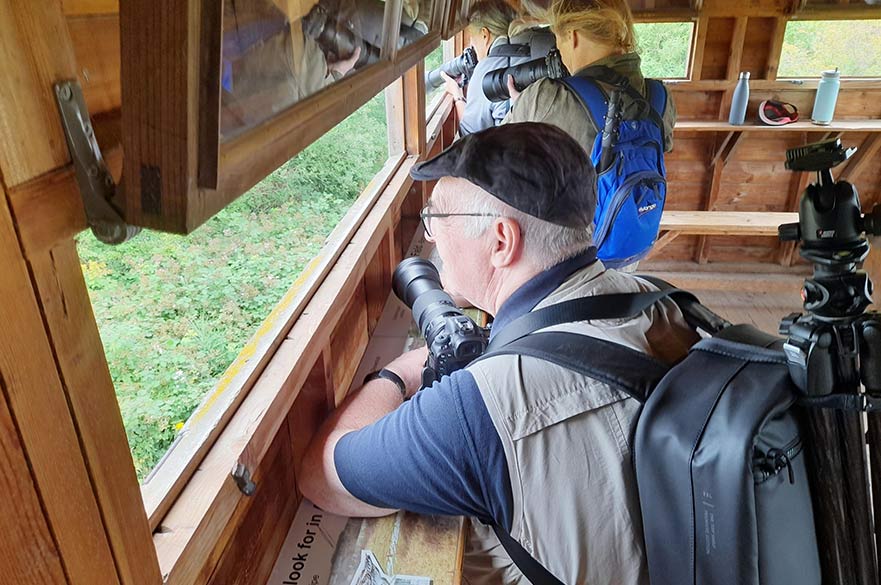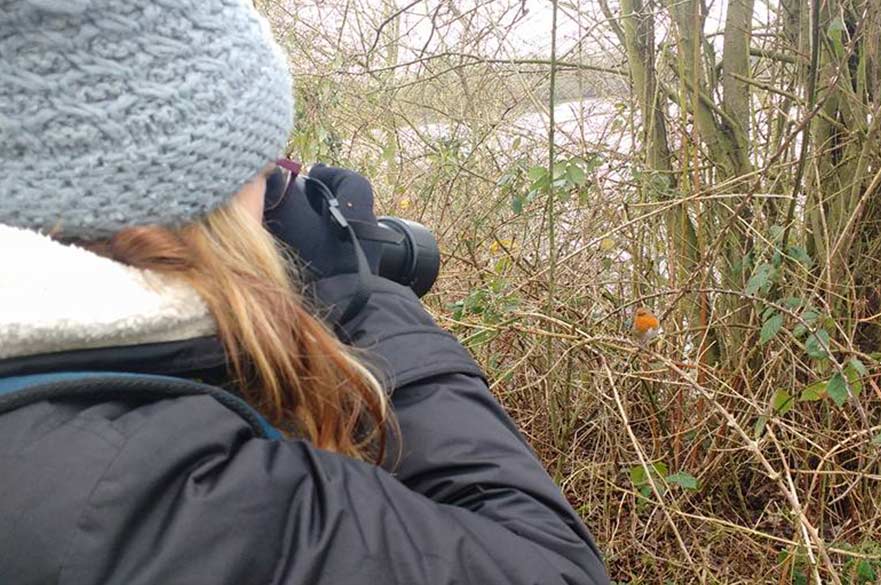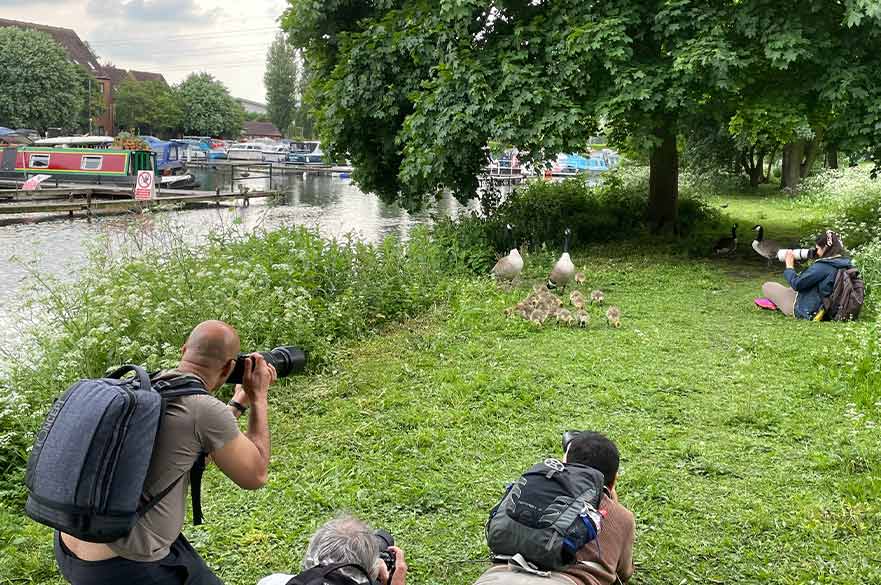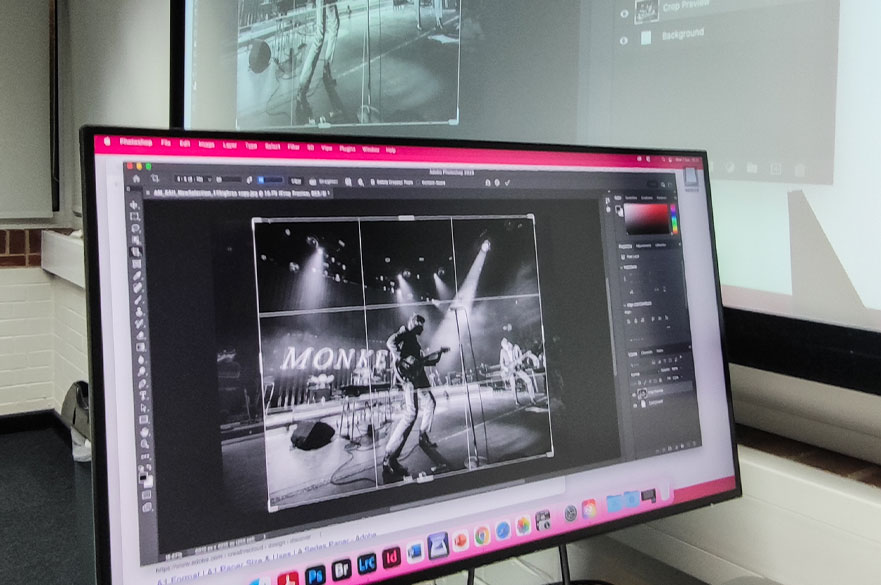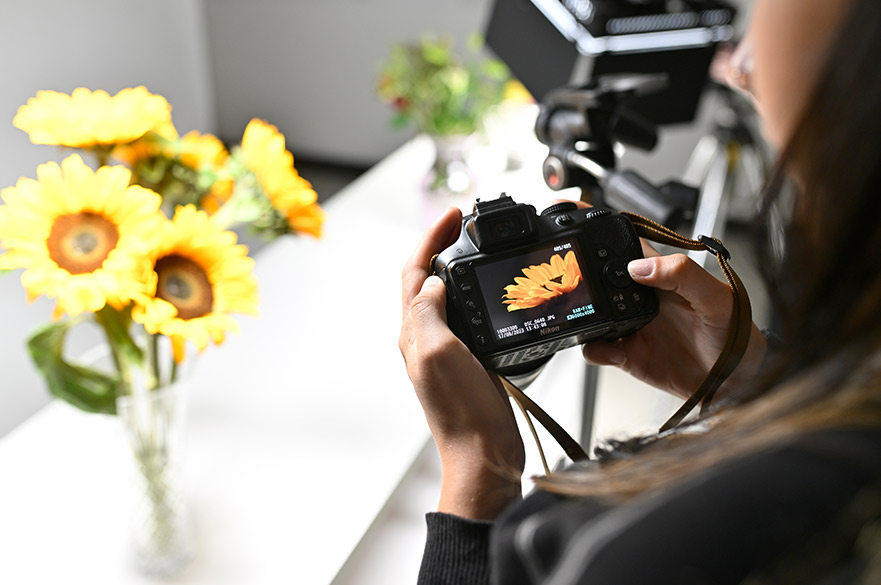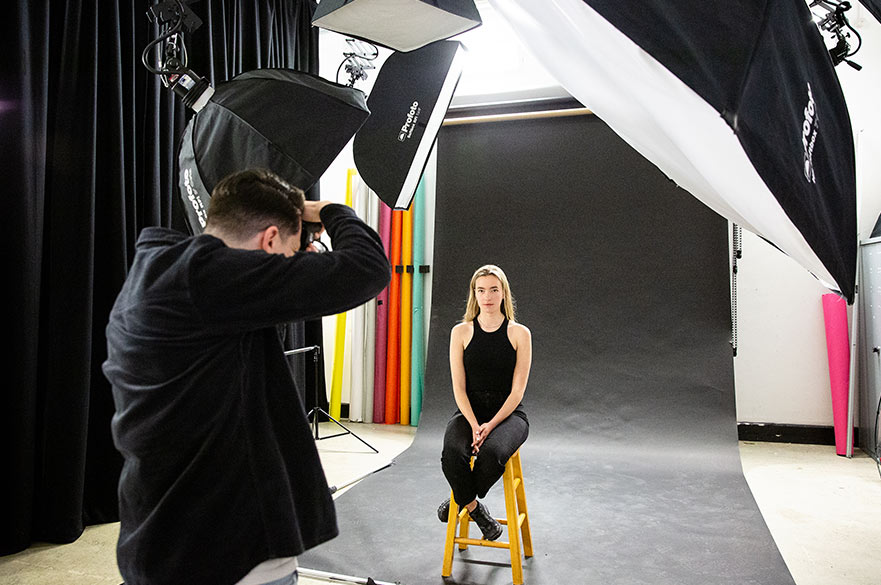Wildlife Photography
- Level(s) of Study: Short course
- Course Fee:
£575
- Start Date(s): 4 August 2025, 28 February 2026, 18 April 2026
- Duration: Saturdays, 10 am to 4 pm, five weeks or Monday to Friday 10 am - 4 pm, one week
- Study Mode(s): Part-time
- Campus: City Campus
- Entry Requirements: More information
Introduction:
Course dates:
4 - 8 August 2025, Monday to Friday 10 am - 4 pm
28 February - 28 March 2026, Saturdays 10 am - 4 pm
18 April - 16 May 2026, Saturdays 10 am - 4 pm
This inspiring course is for photographers, ramblers and outdoor enthusiasts who are interested in taking amazing wildlife photographs.
It’s the perfect opportunity to hone your on-location camera skills, capture amazing images for your portfolio and share an outdoor adventure with fellow photographers.
-
You’ll be part of a design community in our creative studio culture; one that promotes discussion and collaboration, and encourages experimentation and the constant swapping of ideas.
-
With a limited class size you'll have the one-to-one attention you need to ensure you leave with the skills to continue developing your designs at home or work.
-
Benefit from learning with an experienced tutor who has established links to the profession and significant experience working in varied practices.
-
On successful completion of the course, you will receive a digital certificate of attendance and a digital badge.
What you’ll study
With expert tuition on hand, you’ll be guided through the essential do’s and don’ts of professional wildlife photography.
Following an opening presentation, you will be ready to photograph a range of wildlife in a selection of natural habitats.
Whether you’re a beginner or looking to improve on existing skills, this is a great chance to get some unique shots for your portfolio.
- become a responsible wildlife photographer
- engage with live subjects in their natural habitat, including birds, mammals and insects
- learn how to build a hide and the basics of fieldcraft
- be involved in practical workshops in the green spaces close to our studios
- go on day trips further afield to explore habitats and see larger animals
- undertake group critiques and learn how to understand your camera
- learn how to enhance and edit your images in our editing suites.
By the end of your course, you will have created some amazing new images, made some great new friends, explored a beautiful part of the country and got a bit muddy on the way.
You'll have a unique understanding of wildlife photography and its demands as well as rewards.
You'll also have the knowledge and experience of how to plan and capture wildlife shots and how to edit your images effectively.
Student Work
How you’re taught
You will be based in the School of Art and Design on the City Campus.
You’ll find comprehensive Mac editing suites with software for photography editing including Adobe Creative Cloud.
You’ll also have access to our library to use outside of your short course; whilst you can’t reserve or take away books, you are welcome to use them as a resource for research and referencing.
By the end of your course, you will have created some amazing new images, made some great new friends, explored a beautiful part of the country and got a bit muddy on the way.
You'll have a unique understanding of wildlife photography and its demands as well as rewards.
You'll also have the knowledge and experience of how to plan and capture wildlife shots and how to edit your images effectively.
Contact hours
You will receive 25 contact hours of quality tuition with an experienced tutor.
Careers and employability
Certificate of attendance and digital badge
Upon successful completion of the course, you will receive a digital certificate of attendance and a digital badge powered by Accredible.
Your digital credential is more than just a certificate – it’s secure, verifiable, and protected against fraud through encryption and blockchain technology.
They also come with detailed metadata, including an overview of the skills you have achieved on the course, evidence of completion, and assessment criteria if appropriate.
Share your achievements seamlessly with friends, customers, and potential employers online, and proudly add your badge or certificate to social media platforms such as LinkedIn, so all the right people can see it.
Campus and facilities
You will be based in the School of Art and Design on the City Campus.
You will receive an email one week before the course starts with joining instructions on where to go for the first day.
You’ll also have access to our library to use outside of your short course; whilst you can’t reserve or take away books, you are welcome to use them as a resource for research and referencing.
Entry requirements
Level: Beginner
Entry requirement: You should have some knowledge of using your digital camera in manual mode. Good outdoor clothes and footwear are a must.
Fees and funding
The fee for this course is £575.
Payment is due at the time of booking - ask us if you'd prefer an invoice sent to your company.
Secure your place with a deposit - If you're booking more than two months before the course starts, we can accept a £200 deposit to secure your place, and the balance is due one month before the course starts.
Your course fees cover the cost of studies and include great benefits such as the use of our modern library and free use of the IT equipment and software on the campus during your course.
Please bring with you to the first session:
- a digital SLR camera with either a long lens or macro
- a memory stick, notebook and pen.
- Please wear suitable footwear as you will be walking around in the outdoors.
You can read the terms and conditions of booking here.
Need accommodation for a week long summer course?
Accommodation can be booked separately to the course; the rooms are only a few minutes’ walk from our studios and classrooms, and cost £259 per week.
These are single rooms with a private bathroom in shared apartments in Nottingham Trent University’s city campus accommodation, which is ideal if you're looking to be based in Nottingham's lively city centre and want an economical place to stay.
Find out more and book your accommodation here.
How to apply
You can book your place via the NTU online store:
4 - 8 August 2025, Monday to Friday 10 am - 4 pm
28 February - 28 March 2026, Saturdays 10 am - 4 pm
18 April - 16 May 2026, Saturdays 10 am - 4 pm
Browse all our photography short courses.
Any questions?
Contact the short course team:
Email: creativeshortcourses@ntu.ac.uk
Tel: +44 (0)115 848 2813
